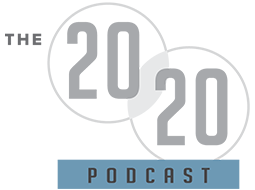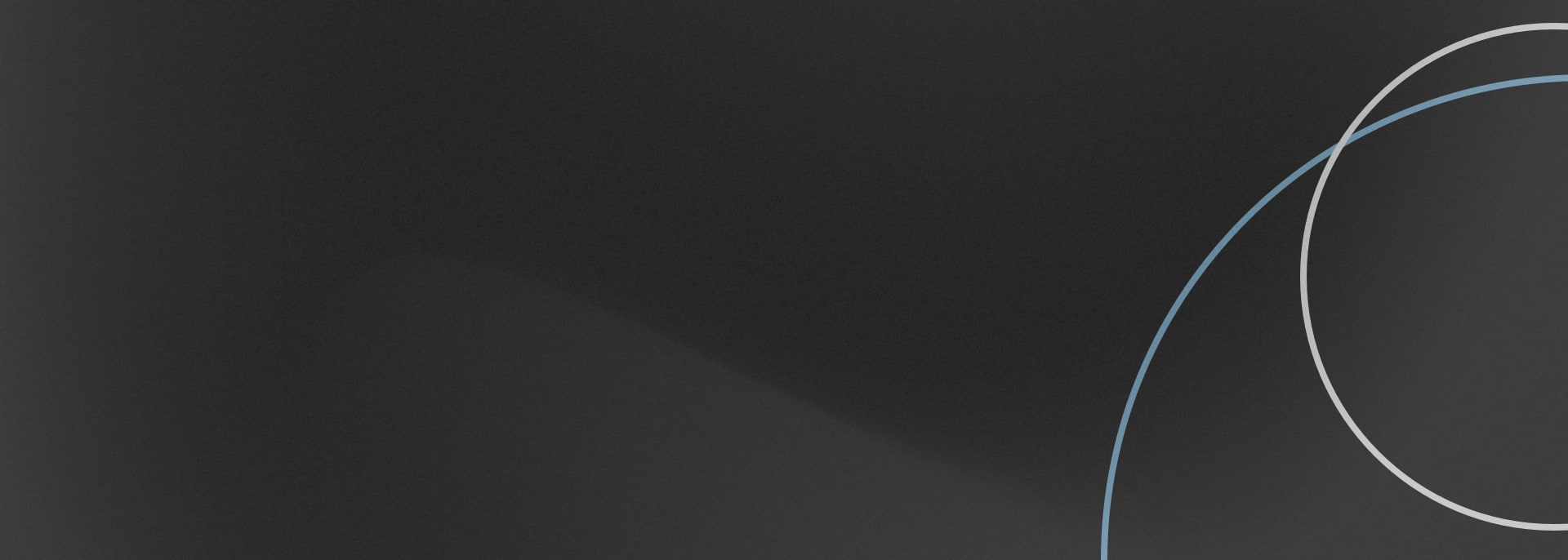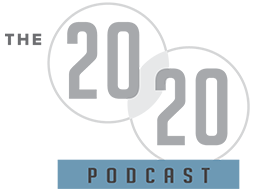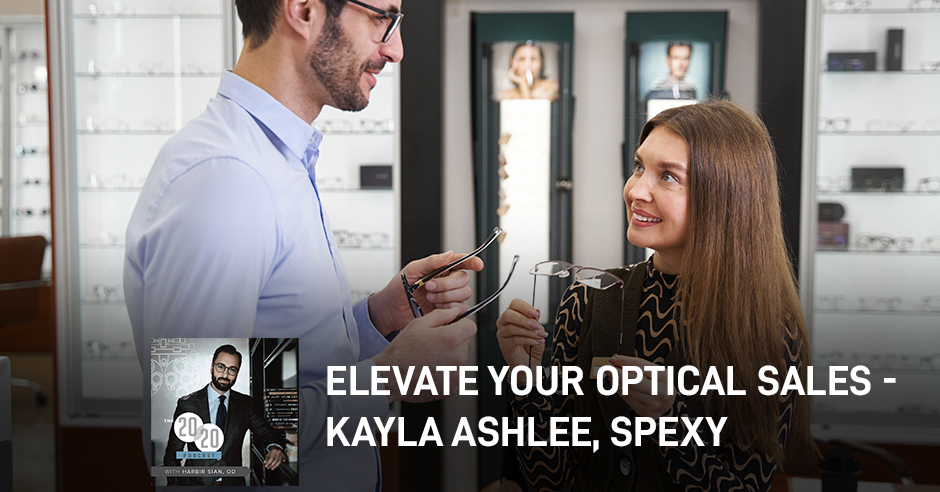
Kayla Ashlee has previously spent years working in the optical industry. Using her business background and her knack for sales, Kayla transformed the optical side of the businesses she worked in. Her success in optical business management and training led her to create Spexy – a Netflix-like online resource for optical training. In this episode, Kayla discusses her entrepreneurial journey, the value of authenticity, and some insights into how to elevate your optical sales in an eyecare practice. Among the struggles most clinics face in this industry, staffing is the largest problem, and Kayla offers some ideas on facing that problem. Kayla also reveals how Spexy is unique from other learning resources. Listen to this conversation, and let’s walk through the eyecare industry with Kayla Ashlee to elevate your optical sales.
Connect with Kayla:
Website: [email protected]
Spexy: bespexy.com
Instagram: https://www.instagram.com/bespexy
LinkedIn: https://www.linkedin.com/company/bespexy
—
Watch the episode here
Listen to the podcast here
Elevate Your Optical Sales – Kayla Ashlee, Spexy
Thank you so much for taking the time to read this show to learn and grow. I’m always so grateful for everybody who takes the time out of their busy day to read these conversations and support the show. As always, I have a very big request right off the top. If you don’t mind, please do share this with a friend, whether posting it on LinkedIn, a snapshot on Instagram, or sending a link to your friend. Let them know we’re having this wonderful conversation, Kayla and I. This is going to be an insightful conversation that’s going to help everybody in the eye care industry, especially business owners.
The biggest thing that you could do to help is to leave a review and leave a comment on Apple Podcasts. It helps us get out there and reach more of our colleagues to share this information. Thank you in advance for that. As I already teased, my wonderful guest for this episode is Kayla Ashlee, the Founder of Spexy, which is an online learning resource for eye care practices.
Kayla has several years of consulting in the eye care industry. She started working in an independent optical and has always been a big advocate for independent optical. Her educational background is in business management. She started Spexy to help lower the barrier to entry for people like me and the rest of us out there in the eye care industry to get more of these learnings to help grow our practices. Thanks for all of that Kayla and for being here on the show.
Thank you for having me. I’m excited.
I’m so happy to have you here. We met in Vegas at Vision Expo West, which was nice. Although I’d seen you online a million times before that. When you see somebody in person, it’s like we’re friends already.
We already know each other but then once you get to see that person in real life, it’s this extra great connection.
There’s something lovely about you, Kayla, and it’s funny that Rook said this to me as well but I had already experienced it. When people meet you in person, the energy that you exude online is very much like your in-person energy as well. It’s nice to see that. It’s infectious. We were doing a panel talk. The couple of minutes I chatted with you before we went on stage, I was like, “I’m good to go. I got Kayla’s energy here.” It’s nice when you meet someone in person and they’re that person that you see online.
Having a business that’s online, I didn’t know that right away. You always try and be perfect online. You want everything to be perfect, especially when you’re editing video and things like that. What I learned is that people don’t like that. People like you to be you and show your authenticity. Ever since I started doing that, it made things a whole lot easier. It’s easier to be yourself anyway.
That is so true. That’s the hard part for some people. I’m not pointing fingers at anybody in particular but one of the pitfalls for some online is that they’re trying to be something online and then when you have to do something in person, you also have to continue to try to be that character or whatever you have created. That might be hard.
There’s a quote from a baseball manager. It’s a little out of context here but it still applies. Somebody asked him a question and his comment was, “I always tell the truth. That way, I don’t have to remember what I said.” It’s the same with authenticity. I’m always being myself so that way, I don’t have to remember what I was trying to be or how I acted. You just know. It’s so great. It stuck with me for so long. I love that. Authenticity is something we could dive into a little bit more but first, I’d love for you to give us a little bit of background on who you are and how you ended up where you are.
I started in the optical industry many years ago. I started in an independent optical. I was lucky because not all doctors and business owners are open to someone coming in and going, “I can make your business better.” Here I was right out of college. I’m working in this optical at the front desk and then turns out I have this knack for selling.
I started selling for the opticians at the front desk and the opticians were like, “Come here, we’ll train you.” I learned to become an optician very quickly. I was working with these doctors. My training is a business background and I’m a huge numbers dork. I started running numbers on all of the money that they were missing out on in their optical frame inventory.
I was like, “Docs, do you mind if we switch some things up?” I showed them all the numbers. They’re like, “If you want to try and manage it, you go right ahead.” I was blessed because not all doctors would do that. A few months later, they’re like, “Whatever you’re doing, keep doing that. Let’s build on that.” You know how doctors are all friends typically in a little area.
This doctor told his buddy about me and then he told this other doctor and she told her friend. I started consulting a few short years later and got a knack for being able to train the entire office. It’s to train an eye doctor to be able to see and understand the business side of things but also to train a team to be able to implement all of these changes and better overall the patient experience.
That’s how I got into it. I started realizing that as that little circle of people around me grew, it was taking me away from my little circle of being at home. It grew into a more legitimate consulting type of thing. I had changed businesses from being inside an independent optical to working for a lens company. I got to visit a lot of these other offices and still do my consulting at the same time.
I got to the point where I decided to put all of my training and everything that I had been using for years online. 2019 is when we started Spexy, which gave me all of my learning resources. It’s almost like Netflix-style training. You get Netflix and choose what kind of training you want to have. It’s a whole library of training. I got to put that online. We have over 700 offices that are using our products.
The Netflix of eye care, I love that. That’s awesome. Good for you. It’s cool that you had a knack for it, which is special. We’re always trying to find somebody who’s got a knack for selling and numbers at the same time. Those are two very good knacks to have. You worked in a place that helped you to tap into that. There was conducive to you growing there. There are lots of places that would be just like, “Can you please do the job that’s been assigned to you?” For somebody to see that potential and let you flourish, it’s amazing. That’s good for them and good for you for pursuing that.
You’ve started Spexy. Tell us about what is Spexy a bit more in detail. What types of things would I see if I landed on your website or signed up to use it?
Spexy pretty much has two major services or umbrellas. The first is the learning platform and that is what I referenced as the Netflix style of learning. There’s a whole library of new hire training, leadership training, insurance and billing mastery that we have in there, training on how to manage your frame boards, and best practices on a bunch of different things. There’s a whole bunch of courses in there that your office can access.
Spexy is the Netflix style of learning.
On the other umbrella is a platform called FrameTurn. It is that numbers nerd reference that I made at that very first clinic years ago. When I started running those numbers, that ultimately turned into this Excel spreadsheet that had 37 different tabs and anywhere from 20 to 40 different algorithms on each of the tabs. I would type in the sales numbers for the office and it would populate a bunch of different directions and guidance like, “Look at these numbers. This one’s dropping. Maybe check out the retail price of this one.” It had all these different flags in there.
When I met Rook, he was the one who was like, “Can you do this for any office?” I was like, “I can. Look, I got a new office.” I plugged it all in there. This was an old Excel spreadsheet style. He’s like, “You have a business.” I was like, “I know nothing about running my own business but I can help eye doctors.” That’s when we started FrameTurn, which provides offices with guidance and coaching for managing their frame board inventory. The way that we look at it is in an independent eye care practice, you have, in my opinion, two big recurring expenses.
The first is on your staff and the second one is on your frame board inventory. You can have inventory up there that’s not selling. It’s different than selling lenses. You pay for lenses after somebody’s already bought them, the eye doctor does. Frame is a huge investment. That’s just sitting out there. What Spexy allows for offices to do is to be able to maximize those two biggest expenses. We’re training your team and helping your team to be optimized as much as possible. We’re also helping you to better manage and optimize that frame board inventory as well.
That’s huge. I know that from my practice. I look out there sometimes and I know those frames have been there for a long time. Anytime we’re buying new frames, my staff takes care of it but I sometimes peek out and look. I was like, “Is that going to sell or go on the board?” I trust my staff but at the same time, we need to make sure we’re managing this.
Something you said offline is something that needs to be said online. As optometrists, we get very little or almost no business training whatsoever. We open these practices and we have to learn it on the fly. Some of us are better at it than others. Some others are better at it than I am. That’s for sure. What you’re saying to me sounds very intriguing and something that we’ll have to talk about a little bit more after we’re done recording here as well. I wanted to ask you, what does it say on the board behind you there?
“Spexy is a resource for freedom.” We found it with owning an independent office or being an independent practice owner. Rook, who we were talking about, is my business partner. Dr. Rook Torres. We’re getting married.

Congratulations. It’s amazing that you took the time to have this conversation before your wedding. Thank you. Rook is responsible for helping get the setup. Thanks, Rook.
He’s a great partner in life and business too. He’s a chiropractor. One thing that he mentioned when we started Spexy and he started seeing and talking to these eye doctors is he started realizing that what we’re providing for an independent practice owner was something that he felt as well. What we’re providing is this resource for them to be able to grow. Let’s be honest. Being a doctor or an optometrist makes decent money. You can be making decent money and missing a huge opportunity to maximize your profits.
It’s true. You can be messing it up for years and still be making decent money. What’s great is that when you start to capture all of the opportunities in independent optical, in the sales, in the patient journey in your office, and everything else, you are able to have another level of freedom. That’s why we have Spexy as a resource for freedom. It’s what we believe. We’re allowing offices to capture another level of production, freedom, peace of mind, and things like that.
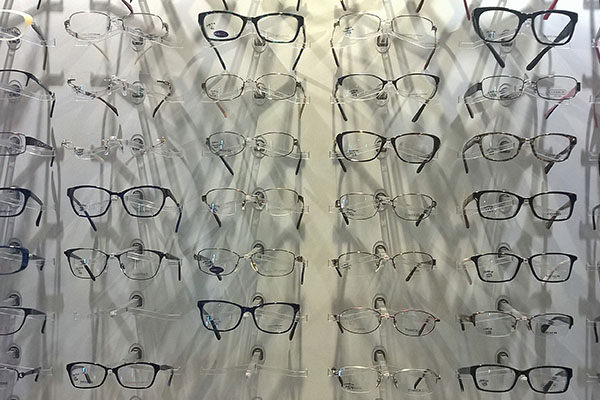
It’s so amazing that that’s a statement that you believe and you have there because that’s something that I talked to colleagues about. When we’re talking about, “I want to make this next step, grow to this level, or open another practice,” or whatever it might be, my thought is always like, “What is your why? Why do you want to do that?”
Some want more money. Ultimately for me, if I were to put it all into one word, the word is freedom. I say that to friends as well. I was like, “What we want is freedom to be able to do what we want to do when we want to do it. If all those other things fall into place, we can achieve that.” The fact that Spexy is a resource for it also is very intriguing to me.
I want to go to the entrepreneurial side. We’ve learned a little bit about Spexy and we’ll come back to that. You are an entrepreneur. I don’t know if some people are comfortable calling themselves that at the end of the day though, like business people, but you started something from scratch. To me, that’s an entrepreneur. You’ve grown it and you’re continuing to work in it. What are some of the struggles that you feel like you faced in that entrepreneurial journey and also as a parent? Where have some of those speed bumps been?
The biggest one I would say would be making the leap from having a good, decent income and what ended up being Spexy on the side, dabbling in it and figuring it out. Making that jump into, “We’re going to start this business now,” is scary. I did not grow up very well off and I love it. I would never change anything because it taught me so much.
I remember a conversation with my grandmother when I was saying I wanted to leave the existing company that I was working for, go out on my own, and start Spexy. She was like, “Kayla, you need to understand that the money that you’re making now, nobody in our family has ever made that kind of money. Why would you leave that?” That’s heavy. I had already reached this pinnacle of our family history.
I knew at this point in my life that I was lucky enough to have somebody. Yes, we would be on a budget for a while but we were at a point where I wouldn’t have to worry about my kids going without a home or going hungry. I would say it to anybody who’s thinking about making a leap who does have a family and makes it so much harder but surround yourself with people who will support you. Look for that support group.
He happened to be my lover and partner in crime as well but I knew that making that jump wouldn’t put my kids at risk. In my heart, I knew that this could be something great. I’m not going to lie. It took a few years before we were making any money but we were at heart. It was all for the cause of what we knew that this dream could become.
I was getting to a point with my job before I left to start Spexy where I was being requested further and further away from home to go and work in these other offices to help consult for them and give them guidance and training. Being pulled away from my kids, home life, and things like that certainly made it easier to make a decision to do this and start Spexy.
We have a studio that’s on our property, the same property as our home. We started recording in the kitchen and got all that stuff done. I knew that I was fulfilling something for these offices and that we could make our reach bigger if we put it online. The whole entrepreneur thing, I didn’t think about myself as an entrepreneur. It was just filling a need and I knew that it could make a difference.
That’s an entrepreneur. That’s what I was saying. There are a lot of times when people don’t think of themselves in that and it’s fine. It’s a weird dichotomy. There are some people out there who throw the word around like, “I’m an entrepreneur,” but it’s just for their Instagram and LinkedIn profiles where they want to say entrepreneur.
There are others like yourself who are humble like, “I don’t know if I’m an entrepreneur.” Truly, in the definition of the word, you started something from scratch, you saw a need, and you’re fulfilling it with the services that you’re providing, I feel like that checks all the boxes. I’m big on quotes, as you might know already. There’s another quote that came to me as you’re talking to your grandma about you’re making a certain amount of money and making that leap of knowing you’re going to have to take a little bit of a hit on the income, which is almost always the case anytime you’re starting something from scratch.
It’s Tony Robbins or something. It’s like, “You make that leap when the pain of staying the same becomes greater than the pain of the potential change.” I feel like that’s what it sounded like. You have to go out to travel to all these places and that’s painful. You don’t like that. You’re away from home more. All of a sudden, the idea of staying home and doing that business sounds a lot more enticing. I feel like that’s that moment sometimes where it flips for people to say, “It’s time for me to do this thing.”
There’s a similar type of quote that I heard right before I started making the moves to Spexy. I forgot his name but the quote is talking about, “There are two types of pain in life. There’s the pain of discipline and the pain of regret.” I knew that if I didn’t make this jump, I would regret it for the rest of my life. That was another big thing.
The two types of pain in life are the pain of discipline and the pain of regret. If you didn’t make this jump, you would regret it for the rest of your life.
I feel like Tim Grover said something like that. That’s a great quote.
It sticks with me. I don’t want to regret.
There’s a similar quote. “If you think the cost of discipline is high, wait until you get the bill of regret.” That was Grover who said that one. It makes a lot of sense. The other thing that I love about this is you started filming stuff in your kitchen. You took what you had and started doing that. It reminds me of when I started this show.
A lot of times people ask me, “How much did you spend on your equipment?” I said, “I still use the same lights I bought years ago when I started trying to record these videos,” which cost me $60 or $70 off Amazon. I was using this little mic that I would clip into my phone. That costs me $30 off Amazon. The total cost is $100. I was doing everything else on the back end myself.
A lot of times, people think they have to buy all this fancy equipment. Yes, I have a decent mic with all this stuff and this came much later. You have your studio, which came later but you don’t have to wait until you have the ability to buy all the fancy equipment and perfect space. All of that comes after you get started. It’s nice to hear that from you as well.
That was difficult for me. I consider myself a recovering perfectionist. I find myself oftentimes in this mindset of, “Nope, it’s not perfect enough.” When you’re trying to start something new, you just have to do it because you’re going to mess it up anyway. I hate looking back at those old videos from my kitchen. I was like, “I cannot believe I put this out there.”
When you try to start something new, you have to do it because you will mess it up anyway.
It would have been ridiculous for me to buy a couple thousand dollar camera, this big old fancy thing, and all this fancy stuff to be like, “I wasn’t ready to be what I am now.” You have to grow with it. If you start doing it with what you have, make the leap, and start making those changes, then your stuff, your a little bit better camera and audio, grows with it. There’s no point in spending all of this money when you’re still perfecting yourself. Don’t be a perfectionist.
Trust me, I am very much an imperfectionist. I’m one of those done is better than perfect or whatever they say, which is sometimes detrimental because I’m like, “It’s good enough.” Sometimes you need to be a little better at it. Get started with what you have. It doesn’t make sense to use that as a stumbling block or a hurdle right off the bat if you have the basics of what you need. Everybody’s got a phone. If what you’re doing requires you to record video or audio, the phone does more than what most cameras can do on the market anyway.
We got rid of our actual cameras and used our phones in the studio. The cameras are so great in the studio setting, on the newest iPhones, and everything else. We’re like, “Out.”
You’ve shared some of the challenges as far as getting started as an entrepreneur. Let’s turn it to specifically the optical industry. What are some of the challenges people are facing in the optical industry? How does Spexy help to overcome it? You’ve talked about it a little bit but what are you commonly seeing maybe in some practices?
The biggest struggle, which has been for a long time and has been more significant, is the struggle of staffing, hiring, and training. I was doing CE courses and they did this poll. That was the biggest problem that offices have by far. There were over 400 people at this CE event. It’s what I see over and over again. The thing with training and staffing in independent optical is that you have typically a small staff member.
Let’s pretend that you have five staff members. Here’s the problem that we run into, or let’s say that you’re hiring a fifth one. Maybe it’s because somebody’s left or you’ve grown, which is good so you need a fifth one. What happens is you are training this fifth person in your office. You finally found someone and you’ve got all of these, “This one’s going to be so much better than the last one,” and all of these great hopes with this new hire.
You have this new hire come on board. To get this new hire trained, you need to take your best person off the sales floor or patient care to train them. Your staff that should be running with five people is only running with three. What’s going to happen is the good person who is usually the trainer or the leader is going to be pulled away from training.
You have to have patient care. We’re not slowing down seeing patients just because we’re hiring or we have a new hire. This person is going to get pulled away from training the new hire. What’s going to result there is that the new hire isn’t going to get the training that they deserve. They’re going to be pushed off the boat and sink or swim style. “Go be friendly. Go ahead.”
The other thing that’s going to happen is that while this person is training the new hire, there’s putting a lot of stress on these three over here. You start to develop burnout, animosity, or all of this other stuff. You’re going to end up losing good people on the team. This is what ends up happening in the dynamics of independent opticals. It creates this constant strain.
We finally hire someone and we start to see the light at the end of the tunnel like, “Yes, we’re going to have some relief,” but something happens. Sally over there leaves. The new hire ends up not working out because they’re too overwhelmed, it’s stressful, and everything else. Would it be that way if we set them up for complete success?
What we found is that it’s much easier. There are a lot of things in the optical world. It’s a trade. It requires you to do hands-on training in the optical field. It doesn’t matter if you’re a tech, front desk, or an optician. The idea that we built into Spexy is that there are a lot of general concepts that we can be training these people. Give them the training on this one part or little dynamic in the optical, allow for them to go to their trainer, and go, “I learned this on Spexy. Show me how to do this.”
What it does is in our little analogy of the five people, it allows this leader to still be a functioning part of the team. “You already learned this. Let’s go talk about it and follow me around.” That’s where you get a lot of the hands-on things. In our little analogy, it allows for the new hire to have a full well-rounded training, which is when they’re pushed off the boat, it’s like, “I swear I taught you that.” “No, you didn’t.”
When you go through our new hire training course, there is a very specific training that we do. The idea of the training structure is to allow for that new hire to be a contributing part of the team as quickly as possible. Many times, we’re like, “We’re going to let them do all the training, read all the manuals, and follow us around for two weeks, and then we’re going to let them go and fly free and they’re going to be great.” That’s not the reality of the optometric field because there are always patients, things, and stuff to mess all that up.
To allow this person to be trained and then come into the chaos and see how they can implement their training is a better structure. Maybe they don’t know how to fit glasses but they sure as heck can learn quickly how to check on the status of orders or be able to schedule a patient. We have a very structured modality in our new hire training to allow for the new hire to be a beneficial part of the team as soon as possible. The big strain on independent opticals is the training and staffing.

That’s one of the biggest things that so many people are expressing. I am feeling it myself. It’s a case in our office too to be able to streamline that and keep the office manager or the leader, whoever is in that position on the floor, to help continue to manage the situation and have that person trained in a very standardized way so you know they’re getting the training they’re supposed to get versus, “Today was busy. We didn’t get a chance to touch on this,” or whatever the case might be. That’s important. It’s good to know that that’s part of the resources that Spexy offers as well. That’s great. What else would you like your potential clients out there, whether it’s optometrists or opticians, to know about Spexy? How can they find Spexy?
One of the biggest things that makes Spexy unique is there are some good learning resources and things like that. It’s 2023. There’s a bunch of resources online and everything else. What makes Spexy unique is that we don’t just do optical training. We highlight how to properly sell. Sales freak some people out. “We don’t sell. We recommend or prescribe.”
I get the necessity for all that verbiage. However, we’re running a business. What I love about the businesses that we are running in the independent optical is we’re not selling high-end purses or ridiculous things that they’re never going to use. We are selling a high-end product that allows them to be able to have a better life. The problem is when you don’t know how to properly do a skill and you’re just figuring it out, you mess it up.

In the optometric field, whether it be opticians or doctors alike, we’re not trained on how to sell. When you’re not trained on how to properly sell, it comes off a little yucky sometimes to patients. It’s like, “Are you trying to sell me on that?” It’s because you’re trying to figure it out. If you know the proper techniques on how to properly sell, the sale pitch or all of that can come naturally where it’s not an off-put thing to a patient.
What makes Spexy unique is that we do sales training because you all need it. We take all the sales training and teach not only what you should be doing but we give you examples. We give you verbiage and tools to take it and implement it within your office. We don’t just give it to the doctors. It’s so much more than recommendations from the chair and the opticians saying, “Do you want to look at a frame?” You don’t say, “Do you,” dialing and all that conversation.
We believe that the sales process and allowing a patient to know that they can shop with you starts from every position. It starts with the front desk. We are big believers that everyone in your office should know their role in the patient journey and how they can play a part in patients staying in your office and buying their eyewear from you. That’s what sets us apart.
What we were talking about right off the top that I feel ties into what you were saying there about the training, sometimes it’s off-putting when people are trying to sell and they don’t know the right words. When we go back to the authenticity thing that we’re talking about in the beginning, that’s so important. If you’re trying to be something you’re not, use words that you’re not comfortable with, and recommend something you don’t believe in, then it doesn’t come off as authentic. It comes off as inauthentic and that you’re just trying to sell them on something.
You’ve learned and internalized that information on how to speak with people and share information. You truly are selling something that you believe is going to help the person. You’re selling a product that’s going to help them see better, live their life better, and serve their family better, not just a $5,000 bag. That is just a thing. That helps you to be authentic when you’re having those conversations and come off in a more authentic way.
It all comes down to believing in what you’re selling and providing for your patients. There are so many people who get hung up on pricing structure and things like that, and not wanting to look too salesy. We have training on anti-reflective treatment. In that, there’s one lesson about profitability for your office and how to speak to patients.
All of us have this long laundry list of what makes anti-reflective treatment great. Patients don’t care at all. Not one bit but they want to know if it’ll help them look, feel, and see better. When you’re having that type of conversation and we dial in that verbiage, we go the extra mile to say that there’s another lesson in there. This is what we point out for the office. This is what is providing a great product for your patients for them to be able to have better lives.
It’s the second or third lesson in there. We train on metrics and teach you how to properly use your verbiage. The other lesson is on belief. You have to believe what you’re doing. We all know it but sometimes it’s taking the time to dwell on that and let it sit. We’ve heard many offices that are like, “The anti-reflective treatment thing makes sense. I need to present it like that.” I love that you tied it back to belief and authenticity because when you have a deep discussion about it that many offices aren’t having, it ties back to being able to authentically sell.
How can people find you, Kayla, and Spexy?
Our website is BeSpexy.com. You can find all the information for us there. We’re on Instagram and Facebook. If you ask any of the social media platforms on any of our communities about Spexy, hopefully, they’re all saying good things but you can typically find us there. The thing with Spexy is that we also carry our authenticity over into how we do business.
Many doctors, when they’re signing up for something new, they’re like, “What’s the catch? How long do I have to be with you? What’s it going to cost to cancel?” The great thing about how we do business is we believe that you should stay with us as long as you love us. If you no longer need us, or you’ve outgrown us, or something like that, then you should be able to cancel. All of our membership services, you can cancel at any time. No questions asked. Our number of active users speaks to the product and service that we’re providing because they can leave at any time. We love that.
Independent opticals have a great time in the optical industry, where there are so many changes.
It’s the fact that they’re able to leave at any time but you, having that many people actively using the platform speaks volumes for Spexy. That’s wonderful to hear. You and I are going to have a conversation after we’re done recording here to see if the fit is right for us as well. Thank you so much, Kayla, for being here. I appreciate it. It’s been great to chat with you, not just about the business but also the surrounding conversations, sharing all the quotes, and all of that. I loved it. Are there any final words you want to share before we wrap up?
The biggest thing is I appreciate you having me on here. We’re at a great time in the optical industry where there are so many changes. Independent opticals are almost forcing this change for us to be able to adapt. Opticals are hungry to adapt and don’t know the best way to go about doing it and implementing change in their offices. I appreciate you having me on here. I hope that we can be a resource to more of your readers. Thank you.
It’s my pleasure. Honestly, it’s been such a great conversation. It was lovely to meet you in person. It’s great what you’re doing for the optical industry. You’re right. Depending on how you look at it, it’s a crazy time. It’s maybe a scary time but because of that, there’s a lot of opportunity if we’re willing to make the changes, adapt, and evolve. It’s great that we have you and Spexy to help us do that and have that evolution. Who doesn’t want to be Spexy anyway? We all want to look a little more Spexy. Thank you so much, Kayla, for coming on. I appreciate it. Thank you, everybody, who’s reading. I will see you in the next episode. Take care.
Important Links
- Apple Podcasts – The 20/20 Podcast
- Spexy
- FrameTurn
- Instagram – Spexy
- Facebook – Spexy
- [email protected]
- https://www.LinkedIn.com/company/BeSpexy
